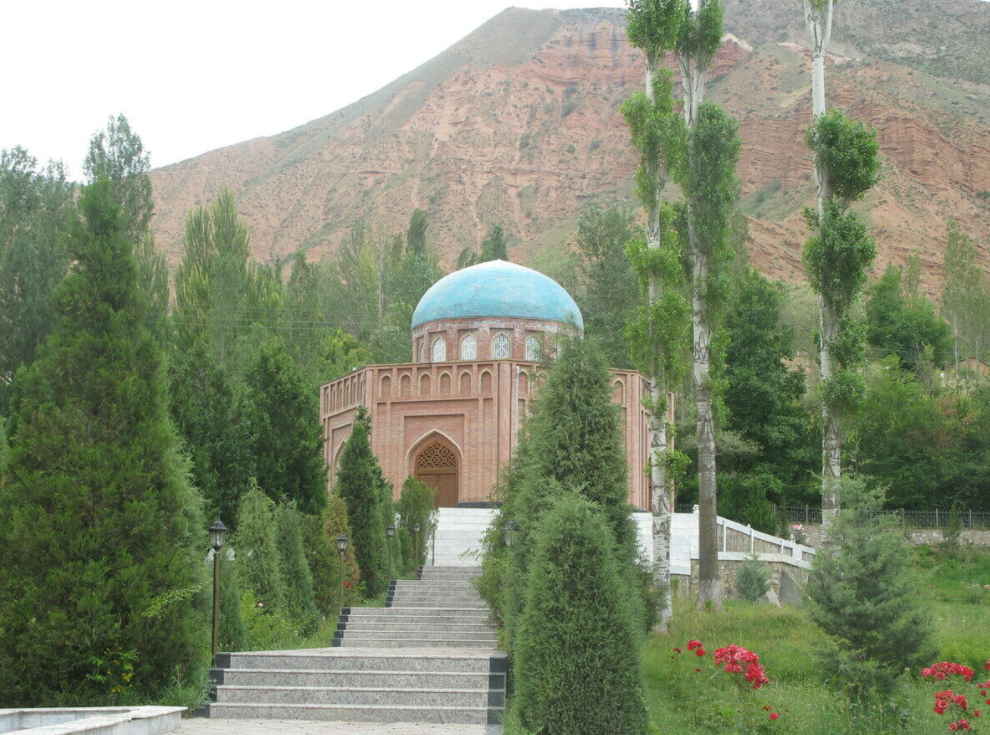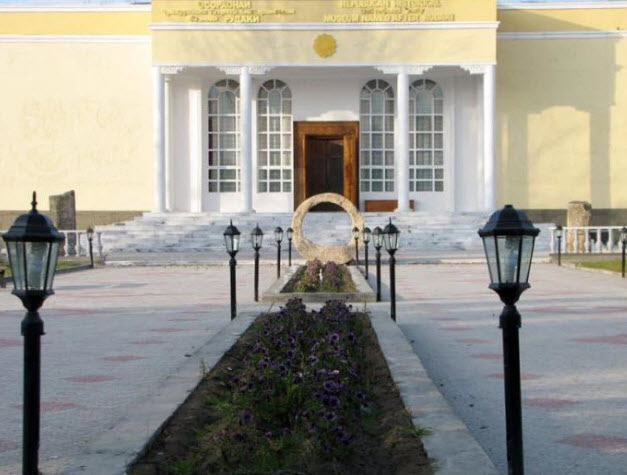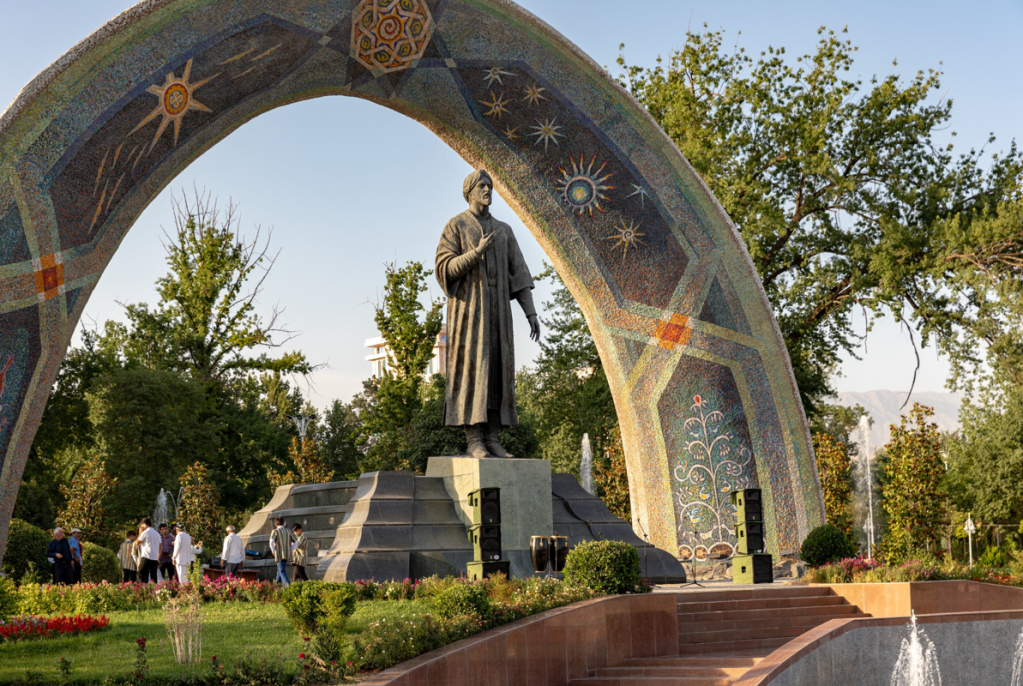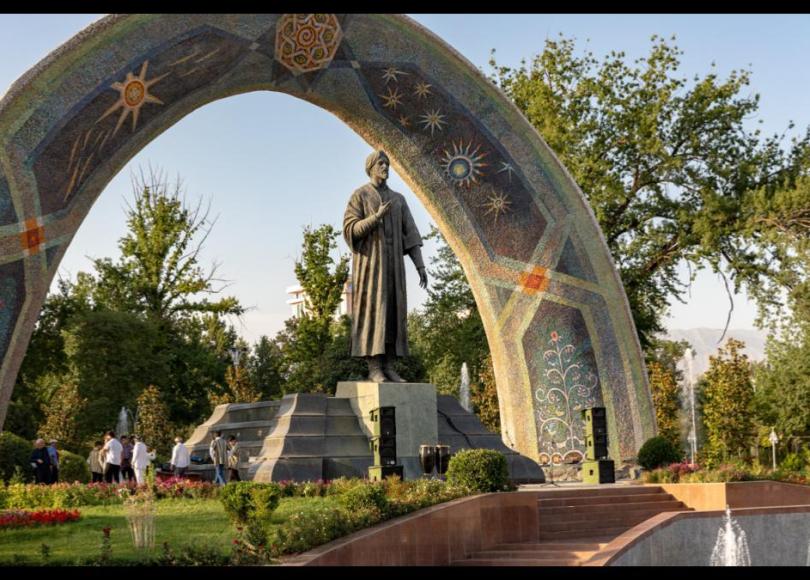“I am proud, in noting just one reflection … that this Centre is located in a neighbourhood that celebrates the great names of Ismoili Somoni and Rudaki.”
Mawlana Hazar Imam
Ismaili Centre Dushanbe, Tajikistan, 12 October 2009
Abu Abdollah Jafar ibn Mohammad Rudaki (ca.858-941), a Persian poet and a talented singer and musician, was born in Panjakent, Tajikistan, and served as a court poet to the Samanid ruler Naṣr II (r. 914–943) in Bukhara (in modern-day Uzbekistan). Rudaki is widely regarded as the father of Persian poetry as he was the earliest poet to write in the New Persian language.
Persian was the official language of the regions under Sassanian rule (224-651). After the Arab conquests of the regions, Persian continued to be the official language of the successive Muslim dynasties, but it was written in the Arabic script and termed “New Persian.” The language and culture spread outside the historical Persian-speaking boundaries into Central Asia and northern India. Rudaki is credited with establishing Persian as a poetic language and influencing the style and form of generations of Persian poets after him. ‘He is considered by many the “father of Persian literature” as he created the concept of the diwan (a collection of the short works of a poet) and developed the literary forms of poetry, including the ghazal, qasidas, and rubais‘ (World History Encyclopedia).
Of the thousands of verses of prose attributed to Rudaki, only a few have survived. In addition to his collection of poems, one of his most important contributions to literature is his translation from Arabic to Persian of Kalilah wa Dimnah, a collection of fables of Indian origin, which earned his fame in Persio-Islamic literature.
A street and a park in Dushanbe, the capital of Tajikistan, are named after him along with a literary prize, a schools, libraries as well as the Rudaki Museum of History located in Panjikent, a few miles outside Dushanbe.



“As we look around us today, we are reminded of other times down through history when a variety of cultures and traditions have come together happily in this land. It is inspiring to remember how enriching encounters of ideas and viewpoints have so often prevailed against opposing forces of ignorance and prejudice. The remarkable flowering of human talent here has owed much to the pluralism of Tajik society. I am proud, in noting just one reflection of that tradition, that this Centre is located in a neighbourhood that celebrates the great names of Ismoili Somoni and Rudaki.”
Mawlana Hazar Imam
Dushanbe, Tajikistan, 12 October 2009
Speech
Sources:
Persian Poet Enters English, Iranian Studies
Encyclopaedia Britannica
Encyclopaedia Iranica
